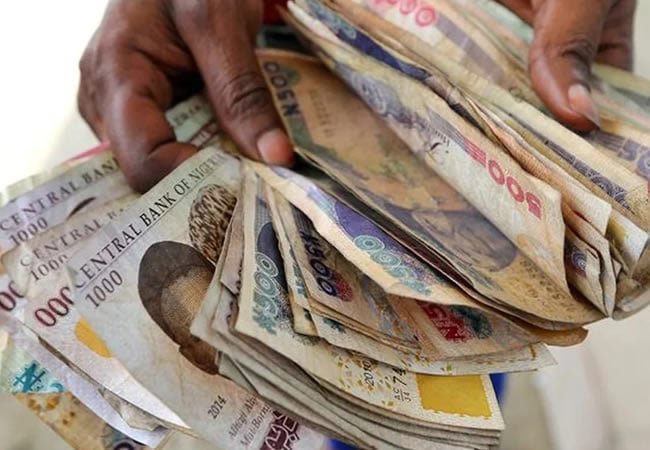How to register for conditional cash transfer in Nigeria is a question many Nigerians ask daily, especially households struggling to meet basic needs. The Conditional Cash Transfer (CCT) program is one of the key social investment initiatives designed by the government to support the most vulnerable citizens. With the rising cost of living, unemployment, and poverty levels, this program has become a lifeline for countless families.
It provides direct financial support to selected poor households while also encouraging positive behavioural changes such as enrolling children in school, ensuring regular medical checkups, and participating in community development activities. Understanding how to register for conditional cash transfer in Nigeria is crucial because registration is not done randomly.
There are procedures, eligibility checks, and community involvement before someone can be enrolled. This article explains everything you need to know about the program, from eligibility requirements and the registration process to how payments are made and the challenges beneficiaries may face.
Understanding Conditional Cash Transfer in Nigeria
The Conditional Cash Transfer program is part of the National Social Safety Nets Project (NASSP), which was established by the Federal Government of Nigeria with support from the World Bank. Its purpose is to provide cash to poor and vulnerable households and, at the same time, encourage families to engage in actions that improve their future. For instance, some conditions attached to receiving cash include ensuring that children attend school, attending health clinics, and sometimes participating in skills training or community meetings.
The program is managed by the National Cash Transfer Office (NCTO), working closely with the National Social Safety Nets Coordinating Office (NASSCO). The idea is not just to hand out money but to create a pathway out of poverty by combining financial support with behavioural changes that can lead to long-term improvement in living conditions.
Millions of Nigerians across different states have already benefited from the program. It focuses mainly on rural communities where poverty rates are higher, but urban poor households are also included through structured targeting processes.

READ MORE
Everything To Know About FHA vs Conventional Loan
The Complete Guide to Best Egg Loan Requirements
Eligibility for Conditional Cash Transfer in Nigeria
Before discussing how to register for conditional cash transfer in Nigeria, it’s important to know who qualifies for the program. Not everyone can walk into an office and apply; beneficiaries are identified through a structured community-based targeting process.
The first step is the creation of the National Social Register (NSR), which is a database of poor and vulnerable households across the country. NASSCO works with state governments, local government authorities, and community leaders to identify and list households that fall within the poorest categories. This is done through household surveys, community meetings, and data collection exercises.
Priority is given to households headed by women, families with no steady income, households with elderly members, or those taking care of orphans and vulnerable children. People living with disabilities also fall under the priority list. Once a household is included in the NSR, it becomes eligible for enrollment into the conditional cash transfer program.
How to Register for Conditional Cash Transfer in Nigeria
The process of how to register for conditional cash transfer in Nigeria is closely tied to the National Social Register. Individuals cannot simply go online to fill out a form or walk into a government office to register themselves. Instead, registration begins at the community level
First, community-based targeting teams visit local government areas to identify poor households. These teams work hand-in-hand with community leaders who know the families living in hardship. Once households are identified, their details are collected and added to the National Social Register.
After being captured in the NSR, eligible households are then enrolled into the conditional cash transfer program by the National Cash Transfer Office. During enrollment, household information is verified, biometric data may be collected, and the beneficiary is linked to a payment platform.
The entire registration process is free, and no individual or agent is authorised to collect money for registration. If anyone demands payment, it should be reported to local authorities or program focal persons.
Registration does not take place in random locations but is organized through official government structures. Most of the activities happen at the local government level, where focal persons are assigned to coordinate the program. These focal persons act as the link between the community and the state offices managing the conditional cash transfer program.
PEOPLE ALSO READ
Everything to Know About The Top Loan Requirements in Dubai Islamic Bank
What Are The Top Loan Requirements in China Bank?
Everything You Must Know Before Applying
Latest Theobarth Grant Disbursement Update
Conclusion
Knowing how to register for conditional cash transfer in Nigeria is the first step for households that need this lifeline. The program is designed to reach the poorest families and provide them with direct support while encouraging positive changes that benefit their future. Registration is not done randomly but follows a structured process.
By understanding the eligibility requirements, registration process, and payment system, families can position themselves to benefit when the program reaches their community. While challenges remain, the conditional cash transfer program continues to play a major role in reducing poverty and improving lives across Nigeria. For households seeking help, staying connected to local government focal persons and community leaders is the surest way to know when registration is open.
